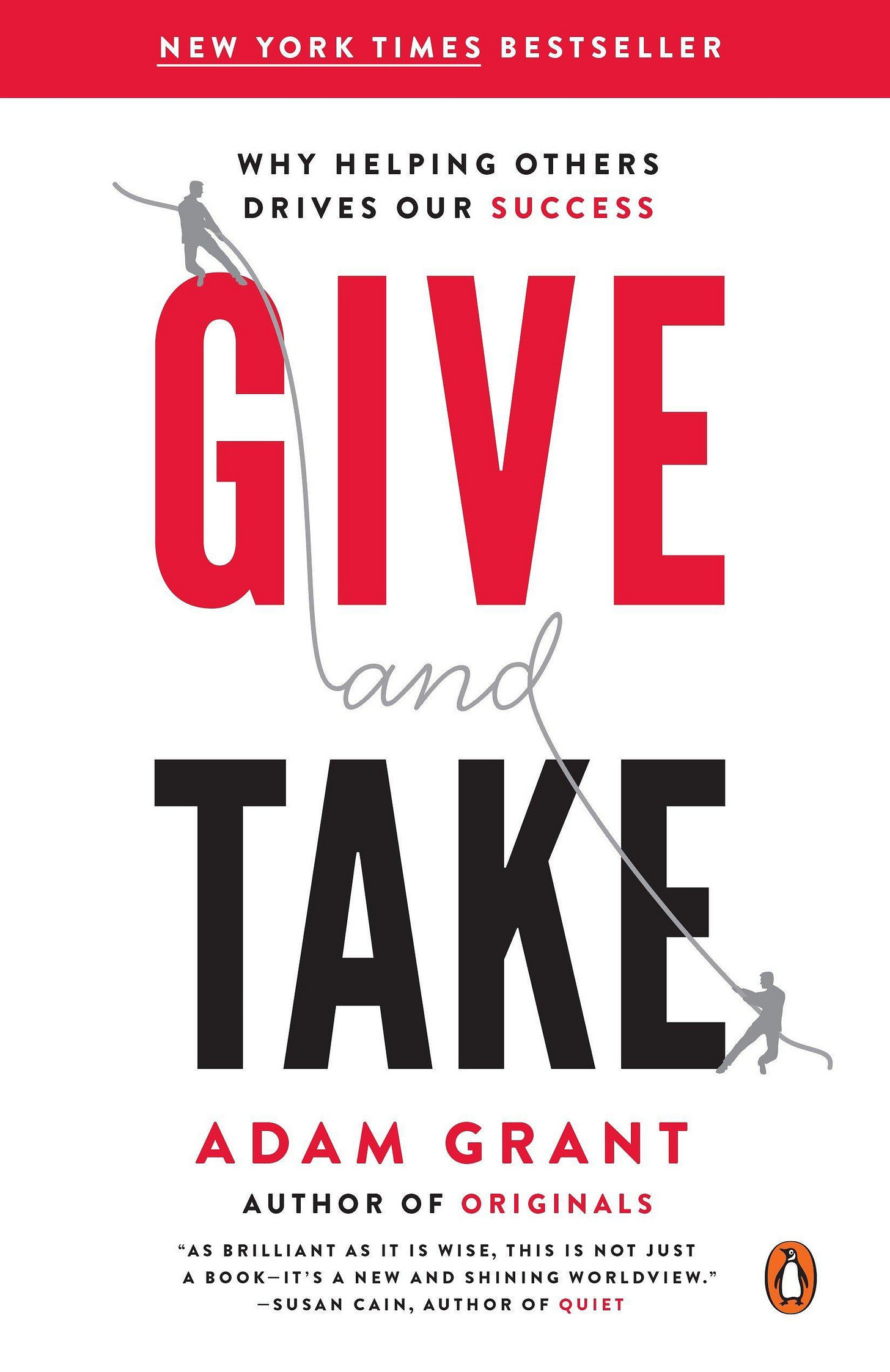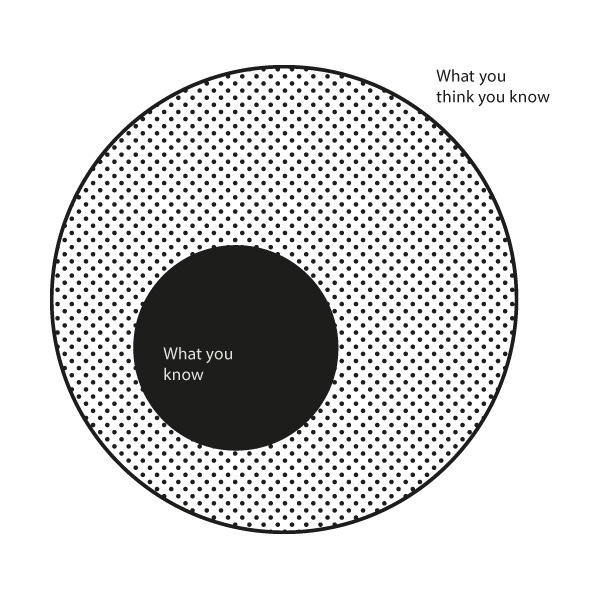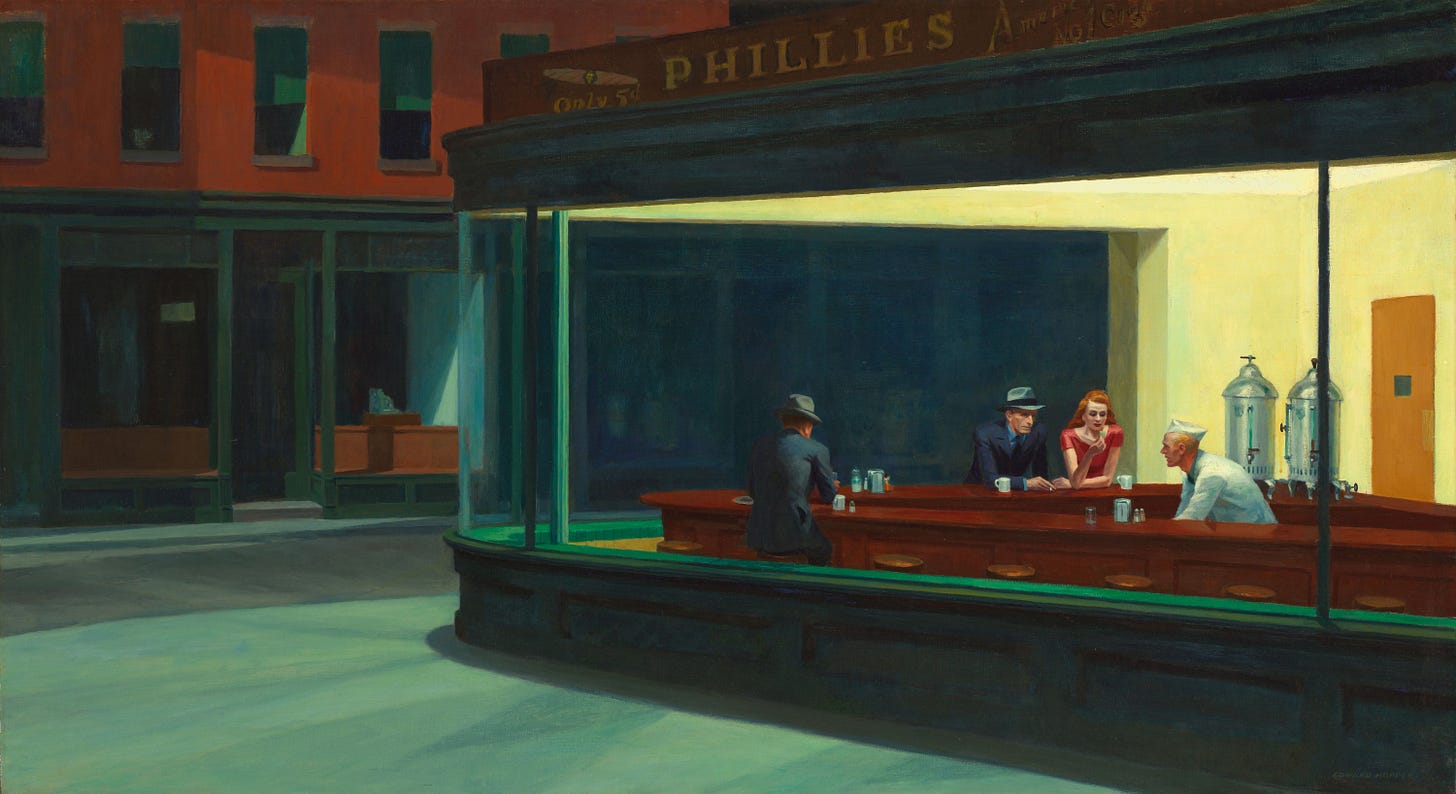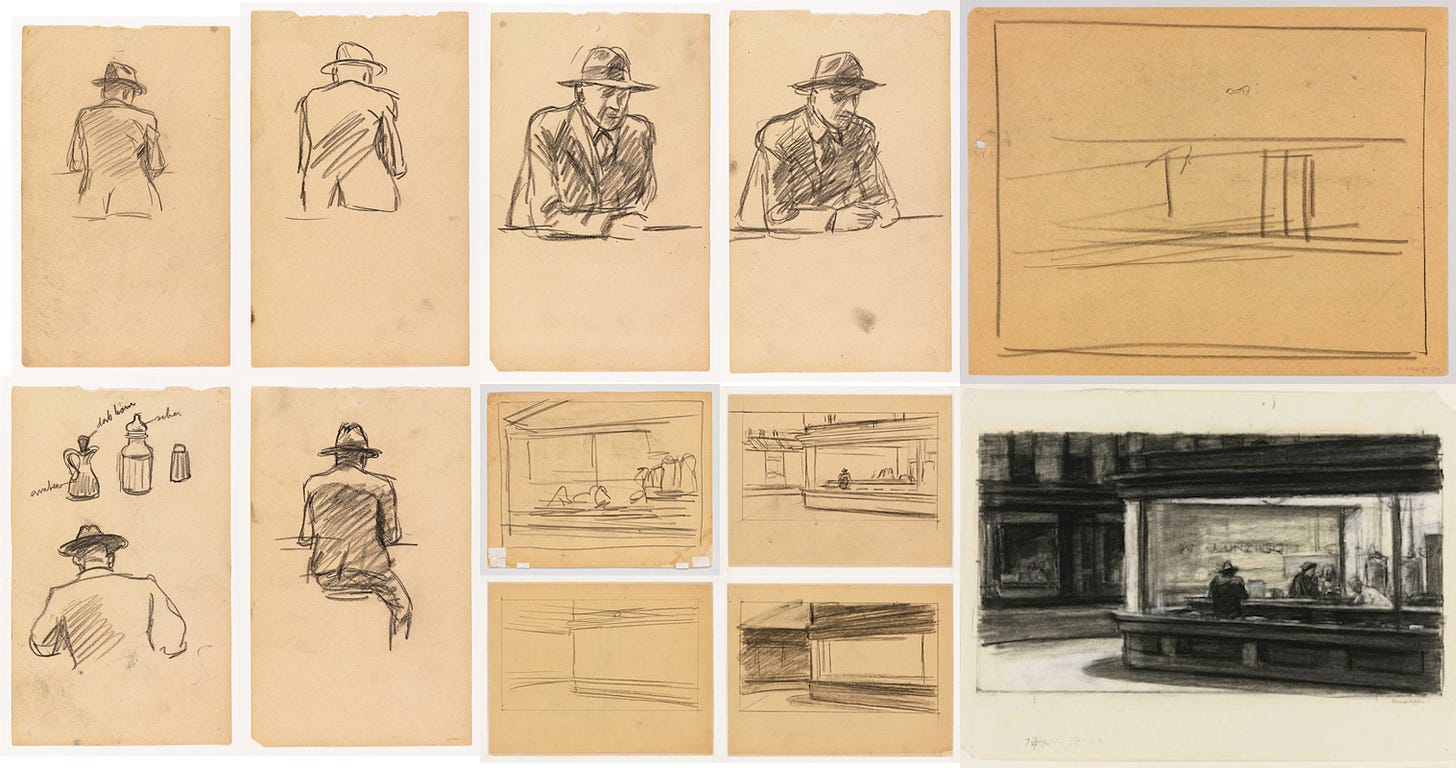Sunday Snapshots (24th May, 2020)
Spotify's New Customer, Give and Take, Good riddance of Jet.com, Edward Hopper's process, Rocket 🚀, and Roger Stone
Hey everyone,
Greetings from a balmy and gorgeous Evanston!
As I recover from the post-anniversary glow, I’ve been hard at work collaborating with other writers.
This week, I co-wrote Spotify’s New Customer with someone much smarter than me, Brett Bivens. Brett writes one of my favorite newsletters, Venture Desktop, where he explores the ideas and trends shaping the innovation economy. He has written extensively about Spotify and when I first had the idea to write this article, I immediately knew he was the right person to do it with. We wrote about the weaknesses of Spotify, Sonos as a potential acquisition target for them, and how it fits into the company’s ecosystem of “ambient media.” The markets apparently noticed. Bonus: If you’ve ever wanted to hear yours truly try to do his best impression of the “podcaster voice”, you can also listen to the article narrated by Brett and me.
Many more collaborations coming in the next few weeks. Stay tuned!
With all that out of the way, this week I want to explore:
The book that informs my approach to “networking”
Good riddance: A tale of Walmart and Jet.com
Edward Hopper’s Nighthawk and the process
The best emoji app for your Mac
Learning from people we disagree with
And more!
Book of the week

As time races towards my college graduation, I’ve been working on catching up with the mentors who have helped me over the last 4 years. Looking back at these years, one of the books that shaped my thinking about “networking” the most was Adam Grant’s Give and Take.
Grant’s hypothesis is that the world is divided into givers, matchers, and takers. Giving (resources, time, network) is good, but only when done in a way that protects your downsides (not being exploited). There is empirical evidence to suggest that givers are both, the best and the worst performers in companies. The book is an exploration of how to land in the former group and avoid the latter. I re-read it this week to go back to some of those lessons:
Scale your giving by writing small guides: When consultant Lillian Bauer was facing a lot of incoming requests and feared that takers were taking advantage of her giving nature, “she wrote advice guides for engagement managers and associate partners, putting much of her knowledge on paper so she didn’t have to end up repeating it to takers.” She did this to avoid being exploited by takers, but this can really be applied in general. Write things down and share them.
Chunking your giving: Pack your giving behaviors into one day a week. Spreading them over a week might diminish their salience and power.
On judging mentees:
Since Jason Geller first started mentoring new hires at Deloitte, he has adopted a version of generous tit-for-tat. At the end of the first meeting with a new hire, Geller makes an offer: “If the conversation was helpful, I’m happy to do it on a monthly basis.” If the person agrees, Geller sets up a recurring monthly meeting in his calendar, with no end. In addition to creating opportunities for Geller to give, the monthly meetings offer the side benefit of helping him understand who might be a taker. “Part of the value of the ongoing dialogue is you can tell pretty quickly who’s faking it, because the good conversations and relationships build upon each other,” Geller explains. “It’s easy to fake it every six months, but not on a regular basis. That’s part of why I encourage people to schedule that time. It’s part of how you sort out who’s genuine while making the biggest impact.”
Become a connector:
Start by going through your Rolodex, LinkedIn, or Facebook network. Identify pairs of people who share an uncommon commonality. Then, pick one pair a week and introduce them by e-mail.
Dominance vs. Prestige:
Even with a receptive audience, dominance is a zero-sum game: the more power and authority I have, the less you have. When takers come across someone more dominant, they’re at risk of losing their influence. Conversely, prestige isn’t zero-sum: there’s no limit to the amount of respect and admiration that we dole out. This means that prestige usually has more lasting value.
The book has some timeless principles, but it is largely dated. Written in 2013, it doesn’t capture how big of a tool the internet is to meet new people. A couple of companies that are making this easier are Lunchclub and Cuppa. But nothing beats having a platform – a YouTube channel, a personal website, or yes, a newsletter. More on this next week in an upcoming collaboration.
Business move of the week
Good Riddance: Walmart drops Jet.com
A $3.3 billion acquisition down the drain. Good riddance for Walmart.
That is the story of Walmart’s decision to shut down Jet.com after acquiring the e-commerce company three years ago.
Why is it a good decision?
From Zach Kanter’s excellent What is Amazon? (emphasis mine):
Incalculable effort went into making Walmart absolutely world-class at merchandising. Walmart’s buyers became gatekeepers for access to the largest marketplace on the planet. The buyer’s job was to identify high-quality merchandise that the customer might want, and then negotiate the best possible price. As Claude Harris put it, “I always told the buyers: ‘You’re not negotiating for Walmart, you’re negotiating for your customer. And your customer deserves the best price you can get. Don’t ever feel sorry for a vendor. He knows what he can sell for, and we want his bottom price.’”
The association I have with Walmart is low prices. That association is well-deserved. But Jet.com was focusing on higher-end customers with a high-touch concierge service. That’s just not going to work out.
It reminds me of Warren Buffett’s Circles of Competence:

This doesn’t just apply to individuals, it applies to companies as well. They should focus on what they are uniquely good at. For Walmart, private concierge service is not what they are good at.
That doesn’t mean Walmart has to give up on its e-commerce’s ambitions. In fact, Walmart is well-positioned in a particular segment of e-commerce: groceries. People are price conscious when it comes to groceries. You also need your produce to be fresh, and the fact that there is a “Walmart within five miles of 70 percent of the U.S. population” comes in handy. They should d̶o̶u̶b̶l̶e̶,̶ ̶t̶r̶i̶p̶l̶e̶, quadruple down on groceries.
Lesson learned: Do what only you can and don’t get distracted by what others are doing.
Random corner of the week

One of the best things about being a Northwestern student (maybe the best thing) is that you get free admission into the Art Institute of Chicago. The museum is home to more than 300,000 works in its permanent collection. But the Koh-i-Noor in its crown jewels is undoubtedly Edward Hopper’s Nighthawk.
So I was giddy with excitement to find the original storyboards that the painting was based upon. It’s a glimpse into the creation of a masterwork. You can see Hopper painstakingly consider every single element of his piece and how they fit together. There is something magical about them – as if we are looking over his shoulders as he considers and re-considers everything.

If you see other examples of “the process”, whether in art or any other domain, just send me a note and I would love to feature it in a future edition of Snapshots.
Fun fact: Nighthawk was acquired by the Art Institute of Chicago the same year that it was painted – 1942. Hope that helps in those Zoom trivia nights.
App of the week

Rocket by Matthew Palmer
Emojis are an inescapable part of modern communication – personal, professional, and everything in between. On iOS, emojis are integrated into the keyboard experience.
As many of us move towards using our desktops in our homes amidst the COVID-19 pandemic, the limitations of MacOS when it comes to emojis can be exposed. While Apple uses its $200B to solve this increasingly pressing problem, indie app developer Matthew Palmer has a solution for us.
His app Rocket allows to wield emojis like Tom Cruise wields his Katana in The Last Samurai. Best of all? You don’t have to move to Japan and spend years learning the craft. You can do it all from the comfort of your chair.
Movie of the week

Long time readers of Snapshots know that I believe in the Ryan Holiday school of philosophy when it comes to learning from not-so-reputable sources:
The ignorance of how things really work is depressing to me. Because it opens us up to manipulation. It closes us off from opportunities to produce fruitful change and advance our own goals. It is time to grow up.
That’s definitely the case this week in this section. I watched Get Me Roger Stone, a documentary about the master-of-the-dark-arts and Nixon-tatto-wielding political operative Roger Stone. No matter how much we disagree with people, we are learn from them. Often, they are the people we can learn the most from. I think there are tons of lessons to be learned from Stone as we transition into what seems to be a post-truth world.
Meal of the week

My roommate’s lovely parents brought over food and on as balmy a day as today, it would have been a crime to not eat it on the lake. Easily the meal of the week.
That wraps up this week’s newsletter. If you want to discuss any of the ideas mentioned above or have any books/papers/links you think would be interesting to share on a future edition of Sunday Snapshots, please reach out to me by replying to this email or sending me a direct message on Twitter at @sidharthajha.
Until next Sunday,
Sid